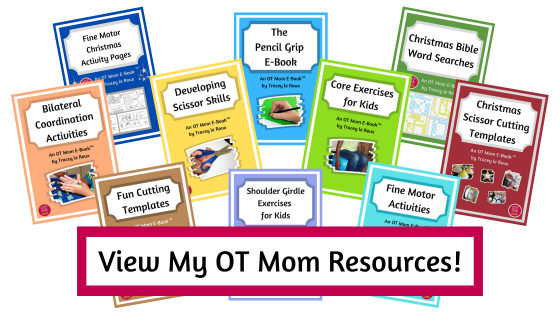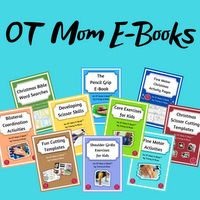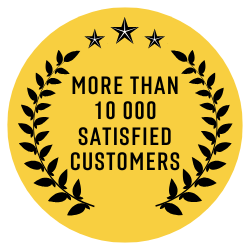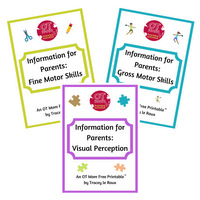- Home Page
- Gross Motor Skills Explained
What Are Gross Motor Skills?
Gross motor skills are an important part of early childhood development, but as a parent, I know how challenging it can be help your child develop these skills.
This page aims to guide you in understanding gross motor development and help you support your child!
I sometimes link to products (#Ad) that are similar to those I use and love. If you do purchase something through my links, I will receive a small commission that helps support my site - thank you!
* Haz click aquí para español: Todo Sobre La Motricidad Gruesa
What Are Gross Motor Skills?
Developing gross motor skills involves the large muscles of the body, such as the arms, legs and trunk. As children grow, they learn movement skills like walking, running, jumping and throwing. Gross motor development also includes developing balance skills, coordination skills and physical dexterity.
Gross motor skills are important as a foundation for the development of fine motor skills. They can help increase independence in self care, and aid in developing academic skills and confidence.
Examples of gross motor skills in infancy include rolling, creeping/crawling, and learning to walk, run and climb.
Older children use gross motor skills to play sports, cycle, swim, climb and even to play some musical instruments! Childhood games like hopscotch, follow-my-leader and jumping rope all use the larger muscles of the body.
The Importance of Gross Motor Skills
- Young children use gross motor skills in play, and in self-care tasks like independent dressing
(think about the
balance needed as you reach down to pull up your pants or your socks).
- As your child gets older, taking part in sports and doing chores will require coordination skills, as well as endurance and a reasonable amount of strength.
-
Even walking up a flight of stairs is a gross motor skill!
- Fine motor skill development can also be affected by gross motor development, and that is why I encourage parents to help work on upper body strength and core stability to help develop the control needed for cutting with scissors or handwriting.
- Regular participation in physical activities that use gross motor skills, can help improve cardiovascular fitness and reduce the risk of childhood obesity.
- In addition, studies have shown that the benefits of gross motor skills and physical
activity include better concentration, independence, self-confidence and
academic performance.
- Developing gross motor skills during the preschool years can help lay the foundation for reading, writing and other school skills.
Here are some specific gross motor skills that your child needs to develop:
- Core strength and stability help to support your child’s spine and provide a base for good posture, balance, and coordinated movement.
- Upper body strength and stability at the shoulder girdle provide a stable foundation for the development of your child’s fine motor skills, as well as for various sports.
- Coordination skills are vital for ball games, dancing, riding a bike, hopscotch and many other activities. Bilateral coordination is the ability to use both sides of the body together in a coordinated way, and hand-eye coordination helps the hands and eyes to work together.
Factors That Affect Gross Motor Development
Gross motor development follows principles like “big to small” and “proximal to distal,” meaning children first gain control over larger, central muscles before developing smaller, distal muscles (Myers).
Several factors can influence a child's gross motor development:
- Genetics plays a role, as each child develops at a different pace.
- Prenatal health, birth trauma, premature birth, and early childhood health may also play a role in the development of gross motor skills.
- If your child struggles with low muscle tone, coordination, balance, motor planning, or concentration, this can affect their ability to take part in, and benefit from, gross motor activities. If you are concerned about any of these, then please reach out to your health care professional.
- The child’s environment also affects the development of gross motor skills. Kids need safe play spaces at home and at school. They also need adults to encourage and supervise physical activity, and access to basic resources like play park equipment, balls and space to play. When these are lacking, this can affect how well a child develops gross motor skills.
- And if a child spends a lot of time on devices, this can get in the way of healthy gross motor development.
Developmental Milestones - Supporting Kids Who Struggle
Between toddlerhood and starting formal schooling, there are many milestones that children achieve, such as catching and throwing a ball, learning to ride a bike and hopping on one foot.
Your child’s natural ability, their environment and the resources at hand, may affect the age at which these milestones are reached.
 Achieving milestones!
Achieving milestones!Typically, by 2 years old, a child may begin running, kicking balls, and climbing furniture. Pedaling a tricycle is usually mastered around age 3 to 4, and skipping by age 5.
A child with gross motor skill delays may struggle to use playground equipment and to keep up with peers in physical education classes. They may avoid sports and games, they may appear to be clumsy, and their fine motor skills may also be delayed.
A child’s teacher or coach often has the experience to spot if a child is behind their peers, and can refer the child for an assessment or encourage parents to take part in gross motor activities to boost their child’s development.
Sometimes, a child just needs some additional encouragement and opportunities to take part in physical movement activities - my website aims to provide parents and teachers with a wide variety of simple gross motor activities to do just that.
Remember, every child develops at their own pace and milestones are simply a guideline. However, if you are concerned about your child’s gross motor development, please consult a physical therapist or occupational therapist. They can assess developmental milestones and provide you with tailored support.
Gross Motor Activities At Home
Parents and teachers can easily include fun, simple gross motor activities in their daily routines.
Here are some practical play-based activities to promote your child's gross motor development everyday!
- Throw and Catch!
Back-and-forth throwing and catching is a fun way to develop hand-eye coordination and bilateral coordination. Bean bags may be easier for preschool kids to work with as they don’t roll away. Try these beanbag games and activities for younger kids!
 Throwing and catching
Throwing and catching- Obstacle Courses!
You can easily set up an exciting indoor or outdoor obstacle course at home.
Try different ways of moving (eg hopping, skipping, creeping, leopard crawling over, around or under different obstacles (tables, chairs, a piece of tape on the floor), and your child will be having loads of fun while working on gross motor skills! - Go To The Park For Outdoor Play!
There is usually a variety of playground equipment that will get your child running, climbing, jumping, swinging and more!
Take some friends and show them how to play “follow-my-leader” or build an obstacle course using the park equipment. - Do Some Chores!
Sweeping, raking leaves, folding laundry - find out which chores have great gross motor benefits!
Improve Specific Gross Motor Skills
If you want to help your child practice gross motor skills in specific areas, then check out these free gross motor exercises to target specific areas of gross motor development:
- Core Exercises for Kids - these gross motor exercises will help your child develop vital core stability.
- Shoulder Girdle Exercises- these fun gross motor activities will help your child develop shoulder girdle stability - this is important for developing fine motor skills.
- Hand-Eye Coordination Activities - try these fun and easy hand-eye coordination activities to boost your child's visual motor skills.
- Bilateral Coordination Activities - these simple, effective bilateral coordination activities are easy to do at home!
For instant access to these activities and many more, get my OT Mom Gross Motor Resources! Packed with easy-to-follow, photographed exercises and bonus planners, they are perfect for parents, teachers and homeschoolers!
You may have landed here because wanted to know more about gross motor skills.
I hope this page answered you, and that you feel empowered and encouraged to help your child develop their skills, to reach their potential and grow in confidence!
Gross motor activities don’t need to be expensive or complicated, they just need to be fun and make your child feel successful.
Remember to have fun with your child as you build skills together!
- Home Page
- Gross Motor Skills Explained
Share this page to help others!
Related Pages
 Overview of Muscle Tone
Overview of Muscle ToneReferences:
Cameron, C.; Cottone, E. A.; Murrah, W. M. & Grissmer, D.W. (2016). How Are Motor Skills Linked to Children's School Performance and Academic Achievement? Child Development Perspectives. 10(2). 10.1111/cdep.12168.
Myers, Beverly. Proprioceptive Neuromuscular Facilitation (PNF) Approach. Occupational Therapy for Physical Dysfunction. Baltimore: Williams & Wilkins, 1995
Didn't find what you were looking for? Try a search of my site!











